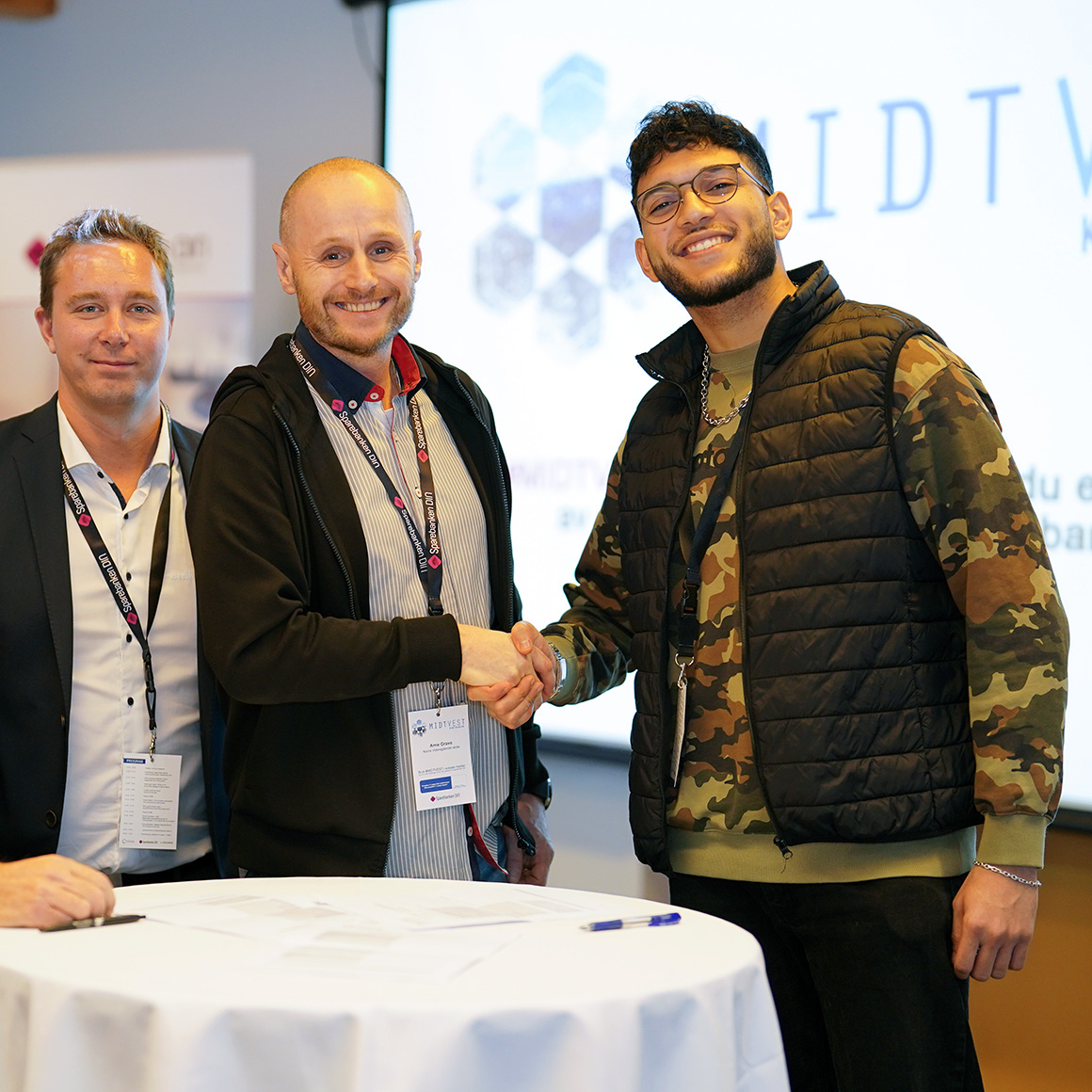
Social Entrepreneurship - Practice placement
Porsgrunn - Full time
Would you like to have a unique practice placement study within the field of social enterprise and social entrepreneurship in Norway, and learn how you can work with social challenges in new and innovative ways?
-
Closing dates: Expired
Study facts
-
Campus: Porsgrunn -
Study level: Exchange programmes, bachelor level -
Progression of study: Full time -
Start up: Autumn 2024 -
Teaching model: Campus -
Credits: 15/20 -
Charge: No tuition fee -
Closing dates: Expired -
Semesters: 1 -
Teaching Language: English
The practice placement course can be taken as:
- A follow-up of SoWGloW 15 ECTS, building on the theoretical framework of SoWGloW and ending with a 10-week practice placement, totaling a full semester exchange of 30 ECTS (from mid-August to mid-December).
- A standalone 12-week practice placement course of 20 ECTS (From the end of September to mid-December)
As a student, you will both be given a theoretical introduction to the concepts of social entrepreneurship, and after this have your placement period with one of USN’s partner social enterprises.
Why Social Entrepreneurship - Practice placement?
If you are interested in increasing your knowledge, skills and practical experiences necessary to make a meaningful impact in addressing pressing societal issues in the world we live in today, this course is for you! Here, you will have a unique opportunity to work with Norwegian social enterprises, applying their knowledge and skills in a real-world setting and to learn about how organizational structures and cultures may drive or hinder social innovation. To facilitate effective learning, you will engage in lectures discussing theoretical frameworks and best practices in social innovation and social entrepreneurship. Here, you will also gain a basic understanding of Design Thinking (DT) aimed at addressing societal challenges. Finally, you will create and work with a project that addresses genuine societal challenges, employing a stakeholder approach to design innovative solutions. By the end of this course, you will be prepared to actively engage in social innovation and social entrepreneurship endeavors on a local level, while at the same time hold important theoretical knowledge about social innovation and social entrepreneurship on a global scale.
Learning outcomes
The overall learning outcome for this practice placement is to empower students with the requisite theoretical foundations and frameworks for critically evaluating the drivers and barriers of social innovation and social entrepreneurship across various national contexts; to enhance students’ competences and skills in project planning, emphasizing the consideration of real societal issues with a stakeholder approach, and provide students with invaluable hands-on experience through work placements at Norwegian social enterprises.
A candidate who has completed his or her qualification should have the following learning outcomes defined in terms of knowledge, skills and general competence:
Knowledge:
- has a comprehensive understanding of social enterprise as a phenomenon, encompassing its historical origins and the factors contributing to its variations across different welfare state models.
- exhibits proficiency in recognizing and comprehending the core attributes of social innovation, while emphasizing its relevance within the domains of social and public policy.
- has knowledge of the intricate nature of social enterprise and social innovation, including their manifold complexities and potential implications.
- can update his/her knowledgebase, particularly with respect to the nuanced aspects and the potential dark sides of social innovation and social enterprise
- has basic knowledge of service design and how it can be used to contribute to positive change on societal issues.
- has knowledge of some methods and tools that can be used in the process
Skills:
- can critically assess the significance of social innovation, offering nuanced evaluations of its capacity to effectively address prevailing social issues and fulfill welfare-related demands.
- can assess the role, positioning and prospects of social enterprise within different welfare state models, taking into account their distinct characteristics and policy frameworks.
- can discern and delineate the nuances among the phenomena of social innovation, social entrepreneurship and social enterprise, thereby facilitating clear conceptual distinctions.
- can identify a challenge in the field of social work, subsequently engaging in a structured design thinking process to propose innovative solutions.
- can familiarize themselves with a problem, plan and carry out an innovation process together with relevant actors in the field of practice, and develop solution proposals for an improved or new service.
- can demonstrate the ability to have a critical, innovative and analytical approach to the field of practice and one’s own practice and learning process
- can apply and link relevant theoretical knowledge to the performance of practical tasks
General competence:
- has expanded understanding and ability to develop sustainable services that benefit partners and society.
- initiates discussion on professional and ethical issues
- can apply some design thinking tools and methods
- demonstrates the ability for appropriate cooperation
Admission requirements
The programme is open to international exchange students studying at one of USN's bilateral partner institutions. Exchange students at the bachelor-level must have completed at least 60 ECTS or equivalent within the relevant study field, and be officially nominated by their home university in order to apply. Admission to the programme requires a good command of the English language, both spoken and written. An English proficiency equivalent to B2 (Cambridge) level is recommended.
The program is open to international exchange students studying at one of USN bilateral partner institutions. Exchange students at the bachelor's level must have completed at least 60 ECTS or equivalent within a relevant field of study and be officially nominated by their home university in order to apply. Admission to the program requires written and oral fluency in the English language (an English proficiency equivalent to B2 Cambridge level is recommended.
The student must be enrolled as a student at the nominating university in a level 6 Bachelor (1. Cycle) in the field of health and social work.

